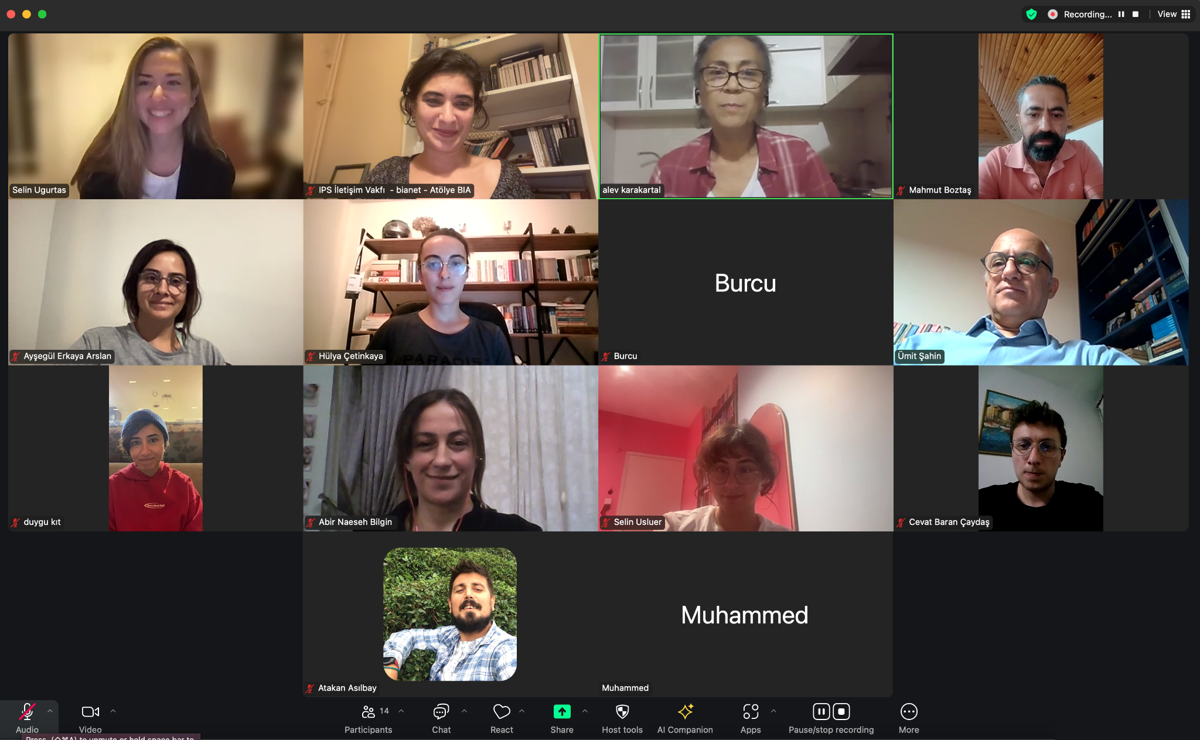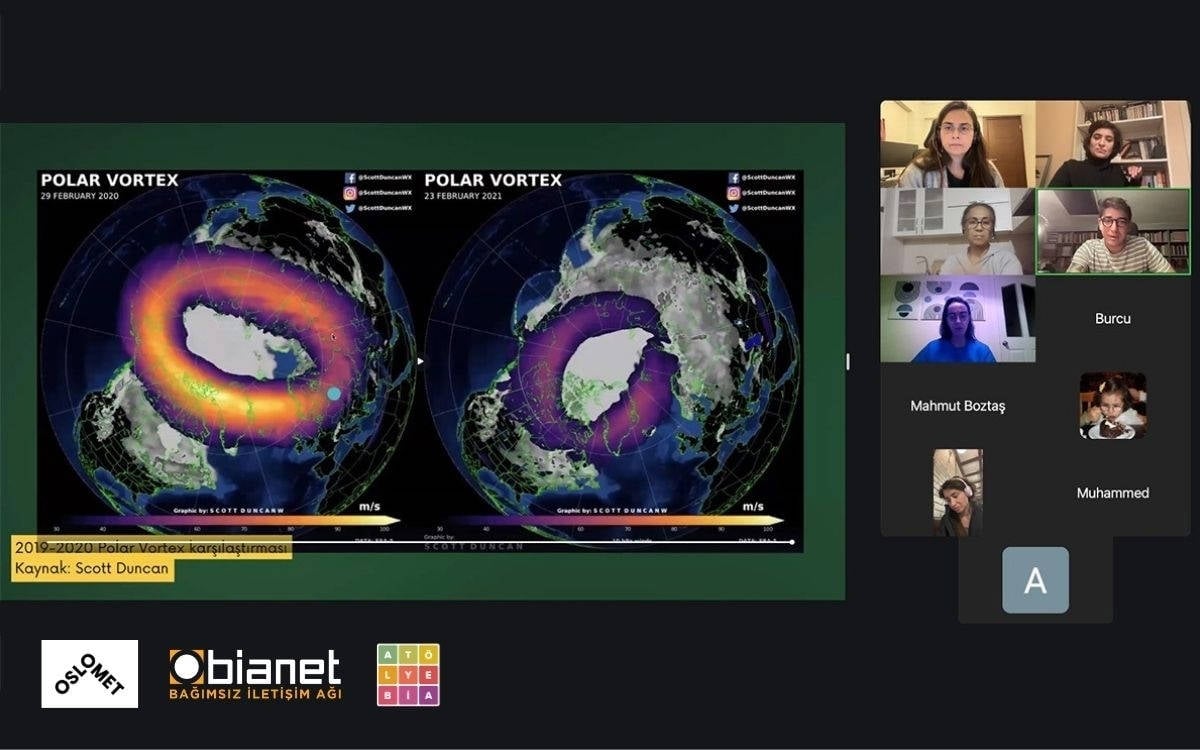With support from Oslo Metropolitan University, the IPS Communication Foundation/bianet recently the Environmental Journalism and Reporting Workshop on Nov 4-5 as part of its Environmental Journalism Training and Reporting Program.
The two-day online workshop, titled “Ecology and Climate Reporting,” was coordinated by Green Gazette Editor-in-Chief Alev Karakartal, who was also an instructor. The workshop featured presentations from Doğu Eroğlu (ortak.org), Selin Uğurtaş (Climate Desk), and Dr. Ümit Şahin (Istanbul Policy Center).
The majority of participants were freelance journalists producing reports in ecology and climate from Artvin, Bursa, Çanakkale, Dersim, Hatay, İstanbul, Muğla, and Zonguldak.

Rights-based climate and ecology reporting
On the first day, Alev Karakartal presented on “Intersecting/Diverging Points and New Concepts in Climate and Ecology Reporting,” emphasizing the need for a rights-based approach to climate and ecology journalism and the importance of using accessible language for the public.
In the second session, Doğu Eroğlu discussed the principles, methods, and tools for crafting effective climate and ecology stories. He highlighted the importance of technical knowledge in a journalist’s field and the ways climate change is conveyed in daily life.
On day two, Selin Uğurtaş addressed identifying and verifying misinformation and “greenwashing” in climate reporting. She examined the evolution of climate denial over time and provided examples of greenwashing as a misleading information type.
In the workshop’s final session, Dr. Ümit Şahin’s presentation, “Where Are We in the Climate Crisis?” offered data and discussions on the climate crisis based on recent academic sources and reports.
After the training, the participants will publish their own articles on various climate issues.
The 2024 cooperation between JMIC/OsloMet and Bianet focus on climate journalism and media monitoring.
About Atölye BİA
Atölye BİA, led by IPS Communication Foundation/BİAnet, organizes workshops focused on rights-based journalism. These workshops are open to journalists, unemployed journalists, communications students, and anyone interested in journalism.
Atölye BİA aims to promote and sustain rights-based journalism by responding to participants’ practical needs in rights-focused news writing, facilitating experience-sharing with BİAnet editors, increasing internship opportunities, and reconnecting dismissed journalists and academics with the field.
Atölye BİA, which features a self-guided structure and rights-based content, designs multi-disciplinary curricula that address participants' needs and requests. The programs include two stages—fundamental and thematic—with extended training modules and follow-up supervision.
The workshops and journalism programs that IPS Communication Foundation conducted from 2002 to 2007, focusing on fundamental journalism, women’s rights, children’s rights, and human rights, and the School to Newsroom programs from 2008 to 2017, have now expanded throughout the year and are accessible to all interested.
To participate in Atölye BİA’s workshops, join the platform, or contact us, click here.
(VK)





